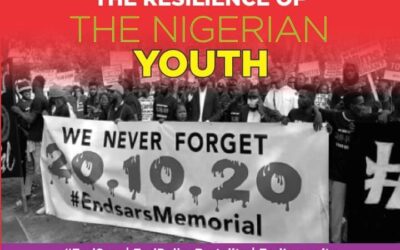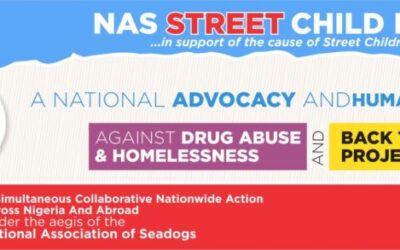On 11th October 2004, a 4-day strike instigated by a coalition of National Labour Unions and Civil Society Organisations to protest the recent price increase started. Several towns have been affected by this strike. The strike has enjoyed considerable success in many of the major towns in Nigeria. In others, it has had qualified success. It is commonly known that the reason for the strike is that it is aimed at forcing the government to revert to the previous fuel price. This increase, which represents a difference of some 20%, is the sixth price increase since the present administration took over in 1999. It has taken the price of fuel from N43 naira to N53 naira and more, per litre.
As with the proverbial coin, this price increase has two sides. For the government, it is contended that with daunting problems still plaguing the down stream oil industry, this government is committed to applying its liberalisation policy as a solution to the problems in that sector. Liberalisation is commonly understood to mean opening up the industry to competition. It is supposed to mean that it ensures that every aspect of the production, refining and distribution as well as dispensing the product is not only self-financing but involves competitive pricing of the products. In stable democracies, it means giving every interested person an opportunity to become involved in the refining of the oil or the importation of petroleum products for use in the country so far as basic standard specifications designed to promote efficiency are met. The government argues that liberalisation is capable of generating additional income which, if properly allocated, can be more effective in addressing social needs in a manner that will be more beneficial than the current price subsidy. This is the case that the government put at its highest.
The case against price increases and its consequences is, both compelling and almost irresistible. This case is best articulated by reference to the position that the Nigerian Labour Congress, its leading advocate, has put out repeatedly, in opposition to these price increases. In summary, NLC states that price increase will induce inflation. This will lead to a sharp increase in the prices of goods and services like transport, drugs and health care. Wages, it argues, have remained inelastic for many years. There will be a sharp decline in the earnings of wage and non-wage earners, which, in direct terms, will represent a freefall in income decline. NLC argues, with considerable force, that there will be higher cost of production in numerous service sectors leading to closure of industries and even greater job losses. Additionally, NLC believes that there will be a decline in the incentive to make functional, existing refineries and that there might be an inclination to invest in new ones despite the fact that the old ones have not worked. Pulling all these arguments together, the opponents of price increases believe that the reform policies of this government in relation to the price increases will have the direct effect of pauperising Nigerians at a level that will be of proportions hitherto unknown to Nigerians. Some commentators have described it, as highly as the “moral equivalent of a death sentence”.
The occurrence of these stalemates between NLC/Civil Society Organisations against the government has seen quite expensive national strikes. The losses incurred in relation to these strikes are both monumental and irreplaceable. This latest strike was initiated following the government’s response to the decision made by the Federal High Court on 21st September 2004. The judgement, in summary, declared strikes arising from what it called on “non-employment related matters” – in particular the strike relating to resisting increase in the price of petroleum – unconstitutional. Legal experts continue to study and comment on the ramifications of that decision particularly the interpretation that the judgement places on circumstances such as that currently under consideration. In that respect, the jury remains out.
The National Association of Seadogs (NAS) believes that what is paramount, at present, is that a permanent solution to this impasse will not emerge unless one of two things happens. The first is that the government becomes directly responsive to the view that unilateral price increases of this nature will continue to attract and exact the kind of actions that will lead to these national strikes. Of that, it appears that there can be no question. The second is that unless both parties address the issues meaningfully in discussion with a view to reaching consensual agreement about the mechanism of fixing prices for the future, what we have witnessed in the form of a national strike will continue unabated. The one position that has emerged which must be plainly obvious to the government is that it will receive serious and far reaching resistance on every occasion when it increases prices in this manner without taking account of what the reaction of the populace would be to such decision making. The decision of President Obasanjo to constitute a 33-man committee on the subject is a step in the right direction. Whilst it may not represent the most ideal forum for such discussion, it is a start. This must mean that active consideration now has to be given to a reversal to the pre-strike position to ensure that this is not seen as a cosmetic gesture. The price of fuel is a single most influential indicator to the immediate and short-term economic future of the country. It is for this reason that it attracts the kind of attention, interest and reaction that frequently occurs whenever the government seeks to interfere with fuel prices.
It is unarguable that Nigeria has been battered by the consequences of mass and communal poverty. Over 70% of Nigerians (approximately 84 of its 120 million people) live below the poverty line. In 1999, the UN Human Poverty Index Reports placed Nigeria among the group of the 25 poorest nations in the world. This is a depressing statistic. Another fuel-induced inflation will devastate the country. The leadership of the country must be aware, however disruptive this position would be to their planning, that persisting with these price increases would more adversely Nigerians. It must be a position that the government should be desperate to avoid. Whether this represents the policy of partial or total liberation, it is, at this time, completely ill timed and, as is evident, unacceptable to Nigerians. NAS calls on the government to reconsider its position and even if this is to be done, must speak to the people. Clearly, there was no consultation. Both houses of the legislature have distanced themselves from these decisions. Who, we must ask, was the government consulting in acting on behalf of the people? There must be a return to discussion in order to eke out a policy and response for the future that is both durable and has a human face
Signed:
ANDREW OBINNA ONYEARU
NAS Capone
National Association of Seadogs (NAS)
12th October 2004



